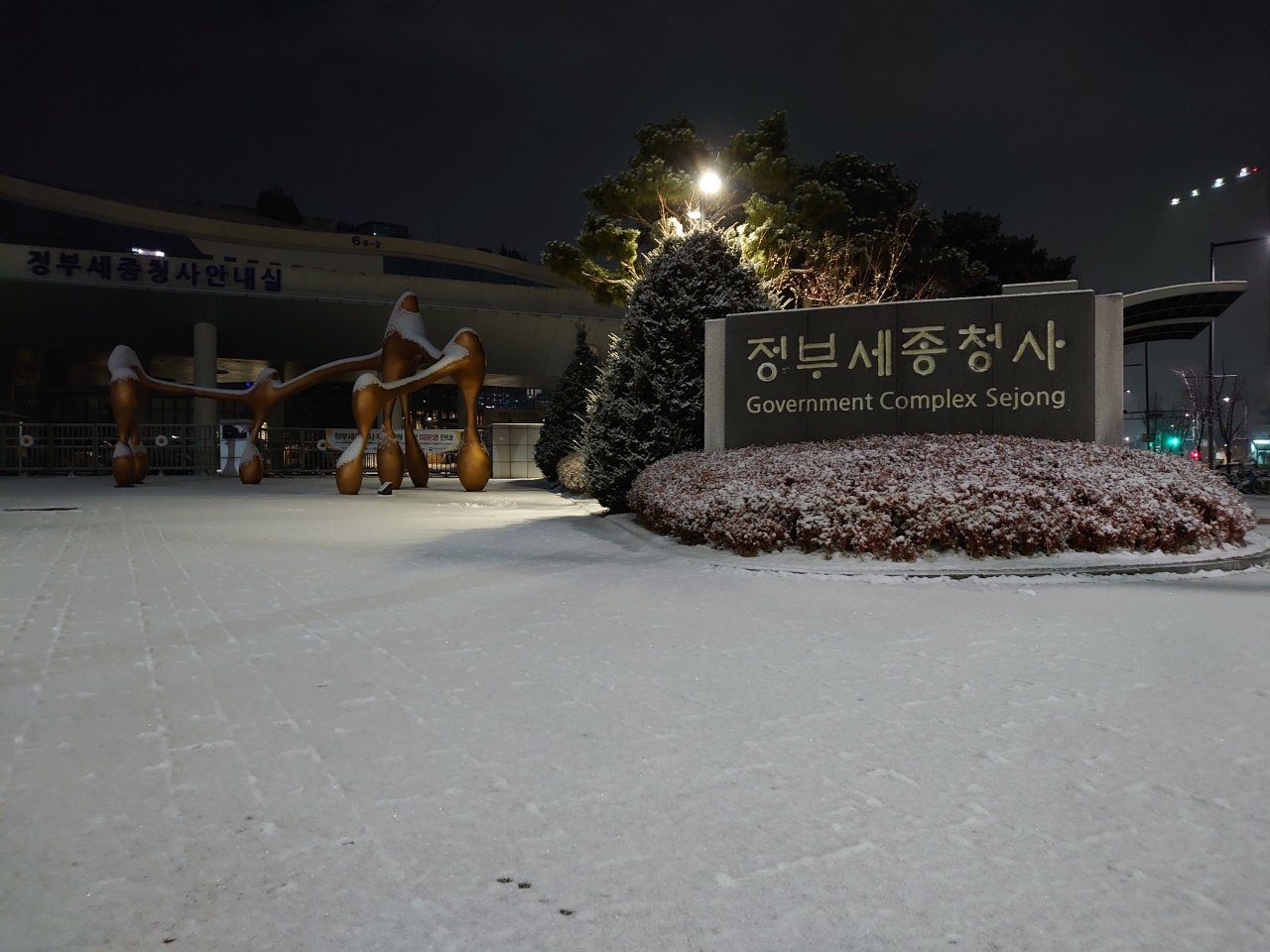Korea seeks economic normalization next year via tourism boosting, new tech
65 technologies from chip, battery and vaccine sectors to be developed as national strategy in 2022
By Kim Yon-sePublished : Dec. 20, 2021 - 16:30

SEJONG -- South Korea has publicized its goals of attaining full-fledged normalization of the economy beyond the pandemic crisis in 2022, alongside taking the lead in global competition to occupy future businesses.
Deputy Prime Minister and Finance Minister Hong Nam-ki highlighted these dual goals during the government’s unveiling of economic policy directions for next year at the Government Complex in Seoul on Monday.
In a bid to maximize the economic normalization, the Ministry of Economy and Finance has decided to carry out policies to boost private consumption -- particularly promoting the tourism sector, which was severely hit by COVID-19.
The ministry told a briefing that the government will offer a variety of benefits to outbound travelers, which will certainly be sought in connection with the future situation of the pandemic involving quarantine.
A noteworthy benefit is the plan for abolishing the upper ceiling of $5,000 (5.9 million won) in purchase of goods at duty-free stores nationwide. Formerly, the price ceiling for outbound tourists (Koreans) was elevated from $3,000, allowed since 2006, to $5,000 in 2019.
In addition, the operation period of nonlanding flight tour products will be extended from “until the end of 2021” to “June 2022.”
The number of international flight routes will also be actively increased or restored from the current 70 routes to 31 countries, which is operations of 330 flights a week. Before the pandemic, 4,712 flights were in operation for 255 routes to 45 countries.
Development of nationwide tour products will also be vitalized in coordination with local governments.
The ministry also said it would expand tax benefits for inbound tourists when they purchase goods in the nation. In addition, five cities -- Busan, Gangneung, Jeonju, Mokpo and Andong -- will be fostered as the pioneer model for regional city tours for foreign visitors, starting from February 2022.
Finance Minister Hong clarified that the tour promotions will be pushed, on the basis of continuously stabilizing consumer prices and supporting those, involving micro-business owners, who were hit hard by the pandemic.
Hong said the government “is not considering drawing a supplementary budget at the current stage,” adding it prioritizes fast implementation of support packages for operating loss-ridden microbusiness owners. Earlier in the day, lawmakers demanded allocation of an extra budget during early next year.
To find new growth engines, the government will designate 65 technologies in three segments -- semiconductor, battery and vaccine -- as “national strategic technologies” in February, which will mark the first of its case in terms of government policy.
Under the scheme, enterprises conducting future businesses will enjoy full-scale incentives in investment.
“Finances totaling 6.3 trillion won ($5.2 billion) will be injected to the three segments in 2022, up 43 percent from 4.4 trillion won a year earlier,” said the Finance Ministry. “Tax deductions for them will be expanded up to 10 percentage points.”
Core technologies for carbon neutrality will also be managed independently, said the ministry.
For the demographic sector, the government unveiled a plan to carry out policy packages to overcome low fertility rates. “We would generate the method of increasing the (portion) of working age population,” said the ministry.
The government also said it would accelerate the supply of homes, by actively conducting groundbreakings next year, to stabilize the real estate market, and push for soft-landing of the all-time high outstanding household debt.
The Finance Ministry forecasted that the economy will expand 4 percent in 2021 and 3.1 percent in 2022. This is higher than growth estimates among some private research institutes, which suggested under-4 percent this year and a 2-percent range next year.
Exports are projected to post record highs for the second consecutive year -- in 2021 and 2022. It also predicted the number of employed is estimated to have increased by 350,000 on-year this year and will grow 280,000 next year, under which the employment rate for those aged 15-64 is expected to rise from 66.5 percent in 2021 to 66.9 percent in 2022.
Most of the policy directions have been focused on the first quarter of 2022, given the March 9 presidential election and the next administration taking office, slated for May 10.
(kys@heraldcorp.com)









![[Graphic News] More Koreans say they plan long-distance trips this year](http://res.heraldm.com/phpwas/restmb_idxmake.php?idx=644&simg=/content/image/2024/04/17/20240417050828_0.gif&u=)
![[KH Explains] Hyundai's full hybrid edge to pay off amid slow transition to pure EVs](http://res.heraldm.com/phpwas/restmb_idxmake.php?idx=644&simg=/content/image/2024/04/18/20240418050645_0.jpg&u=20240419100350)






![[KH Explains] Hyundai's full hybrid edge to pay off amid slow transition to pure EVs](http://res.heraldm.com/phpwas/restmb_idxmake.php?idx=652&simg=/content/image/2024/04/18/20240418050645_0.jpg&u=20240419100350)

